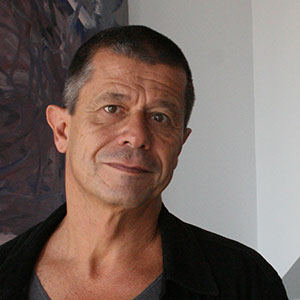
Emmanuel Carrère (b. Paris, 1957) is an author, screenwriter, and film director. He studied at the Paris Institute of Political Studies. He began his career as a film critic; he wrote essays about film direction and published his first novel, The Jaguar’s Friend, in 1983. Since then he has prevailed internationally as an extraordinary writer with five celebrated nonfiction novels. His writing has been translated into more than twenty languages, and his books in Spanish are issued by the publisher Anagrama, with which he has published The Adversary, My Life as a Russian Novel, Lives Other Than My Own, Limonov, The Kingdom, and the biography of Philip K. Dick, I Am Alive and You Are Dead, among others. His Gothic Romance won the Premio Pasión; his Class Trip, the Prix Femina. Among the prizes he has been given are other important awards such as the Premio de la Lengua Francesa and the Prix Renaudot. Nominated by Felipe Restrepo Pombo / Representative text: The Adversary
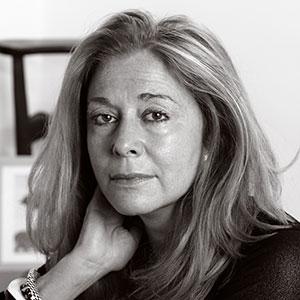
Jorie Graham is a poet raised in Italy, where she attended French Lycée and then went on to study at the Sorbonne. She learned English as her third language when she emigrated to the United States in 1968. She has since written fourteen collections of poetry in English, which have been widely translated. She writes on a wide range of issues—generally considered philosophical or ecological—but her last five books are urgently concerned with war, climate change, migration, and explore notions of a posthuman future with ruthless and sometimes terrified attempts at witness. She has also explored intersections between her own illness from cancer and the general illness that afflicts the human heart and its relationship to a planet it is rendering ever more incapable of cure. Her work has won many national and international awards. She lives in Cambridge, Massachusetts, where she teaches at Harvard University. Nominated by Dunya Mikhail / Representative text: Fast
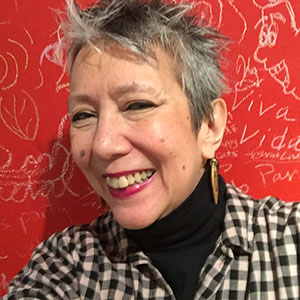
Jessica Hagedorn is originally from the Philippines and came to the United States in her early teens. She is the author of Dogeaters (National Book Award Finalist), The Gangster of Love, Dream Jungle, Toxicology, and Danger and Beauty. Hagedorn has edited three fiction anthologies: Manila Noir, Charlie Chan Is Dead: An Anthology of Contemporary Asian American Fiction, and Charlie Chan Is Dead 2: At Home in the World. Work as a playwright includes the stage adaptations of Dogeaters and The Gangster of Love. Her fiction, nonfiction, and poetry have been widely anthologized, including in The Soho Press 80s Book of Short Fiction, Becoming American: Four Centuries of Immigrant Writing, Rock She Wrote, and Postmodern American Poetry: A Norton Anthology. Prizes and honors include the Guggenheim Fiction Fellowship, the Hewlett, Gerbode Foundation Playwriting Fellowship, the Before Columbus American Book Award, and the Philippine National Book Award. Nominated by Joseph Legaspi / Representative text: Dogeaters
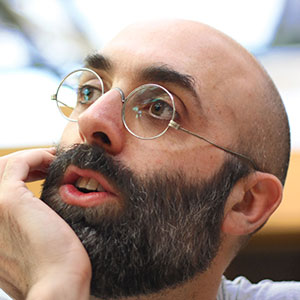
Eduardo Halfon was born in Guatemala City, moved to the United States at the age of ten, went to school in South Florida, studied industrial engineering at North Carolina State University, and then returned to Guatemala to teach literature for eight years at Universidad Francisco Marroquín. Named one of the best young Latin American writers by the Hay Festival of Bogotá, he is also the recipient of a Guggenheim Fellowship, Roger Caillois Prize, José María de Pereda Prize for the Short Novel, and the Guatemalan National Prize in Literature, his country’s highest literary honor. He is the author of fourteen books published in Spanish and three novels published in English: Mourning, winner of the Edward Lewis Wallant Award, finalist for the Kirkus Prize, International Latino Book Award, and Balcones Fiction Prize, and longlisted for the PEN Translation Prize; Monastery, longlisted for the Best Translated Book Award; and The Polish Boxer, a New York Times Editors’ Choice selection and finalist for the International Latino Book Award. Halfon recently received a fellowship from Columbia University to write his next book in Paris. Nominated by Anna Badkhen / Representative text: Mourning
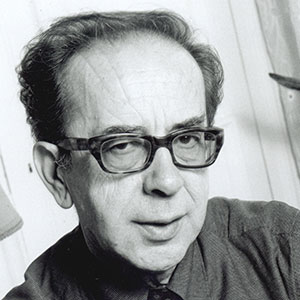
Ismail Kadare is one of the most significant voices in world literature today. Born in Albania in 1936, he began publishing poetry and fiction in the 1960s when Albania was a totalitarian state. His first great novels are The General of the Dead Army (1963) and Chronicle in Stone (1971). Agamemnon’s Daughter (1985), a novella exposing the subtler horrors of dictatorship, was smuggled into France. In 1990 he moved to France. His collected novels have been re-issued by Vintage: The Palace of Dreams, Broken April, The File on H, The Pyramid, The Traitor’s Niche, and The Successor (2003), which many consider his finest. Kadare’s prose is celebrated for its economy, poetry, and wit and its unparalleled exploration of the culture of tyranny. His work is a monumental testament to his own observation that “the writer is the natural enemy of dictatorship.” His novels are translated into forty-five languages. In 2005 he was awarded the inaugural Man Booker International Prize for “a body of work written by an author who has had a truly global impact.” He is the recipient of the Spanish Premio Príncipe de Asturias de las Letras (2009) and the Jerusalem Prize for the Freedom of the Individual in Society (2015). Nominated by Kapka Kassabova / Representative text: Broken April
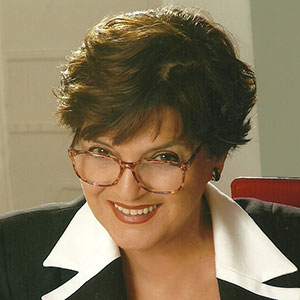
Sahar Khalifeh is one of the most important Palestinian Arab novelists. Her writing focuses on Palestinians’ daily life under occupation and on the lives of Arab women and the oppression which hinders their progress in the Arab renaissance. At age eighteen, Khalifeh entered a traditional arranged marriage. At age thirty-two she got a divorce and started life again. She enrolled in the Department of English at Bir Zeit University where she obtained her BA in English literature, an MA in English from the University in North Carolina, and a PhD in Women’s Studies and American literature from the University of Iowa. In 1987 Khalifeh returned to Palestine and founded three Women Affairs Centers in Nablus, Gaza, and Jordan. Khalifeh has published eleven novels and many articles and studies. Her novels and nonfiction writing have been translated into several languages. Khalifeh has been the recipient of many Arab and international awards. Nominated by Philip Metres / Representative text: Wild Thorns
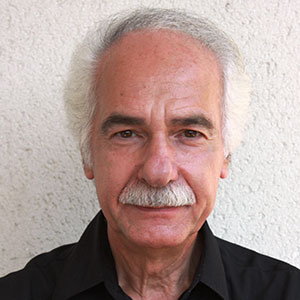
Abdellatif Laâbi was born in Fez, Morocco, in 1942 and is widely acknowledged as one of the most important poets writing today. Early in his life, Laâbi was the founding editor of the revolutionary literary magazine Souffles, which became a focal point for the first postcolonial generation of Moroccan writers, perhaps most notably helping to launch the careers of Tahar Ben Jelloun and Mohammed Khaïr-Eddine. Laâbi soon attracted the ire of King Hassan II’s brutal regime, and he was imprisoned for eight years (1972–1980) for his outspoken opposition to the aforementioned government. Forced into exile five years following his release, Laâbi relocated to France and was elected to the Académie Mallarmé in 1988, as well as later awarded the Prix Robert Ganzo de Poésie (2008), the Prix Goncourt de la Poésie (2009), the Prix Benjamin Fondane (2011), and the Grand Prix de la francophonie (2011). A prolific novelist, poet, playwright, and translator, Laâbi also edited a groundbreaking volume of twentieth-century Moroccan poetry. Nominated by André Naffis-Sahely / Representative text: Beyond the Barbed Wire
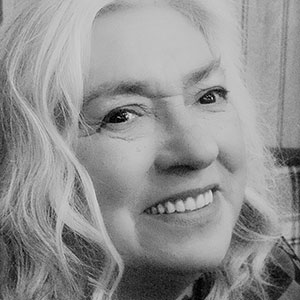
Lee Maracle is the author of several critically acclaimed works, including the novels Ravensong, Celia’s Song, and Daughters Are Forever; the autobiographical novel Bobbi Lee; the verse collection Bent Box; and the young-adult novel Will’s Garden, among others. Her nonfiction feminist text, I Am Woman, was long-listed for Canada Reads and short-listed for the Re-lit award. Her best-selling nonfiction work, Conversations with Canadians, was short-listed for the Toronto Book Award. Maracle received the J. T. Stewart award, the Premier’s Award for Excellence in the Arts, the Blue Metropolis First Nation’s Literary award, the International Festival of Author’s award, and the Anne Green award. An award-winning instructor at the University of Toronto, Maracle is currently teaching in Indigenous Studies and holds the position of Traditional Teacher at First Nation’s house. Maracle served as a Distinguished Visiting Scholar at the Universities Waterloo where she was also the Stanley Knowles Guest Professor, and at Western Washington University in Bellingham Washington. Nominated by Katherena Vermette / Representative text: Celia’s Song
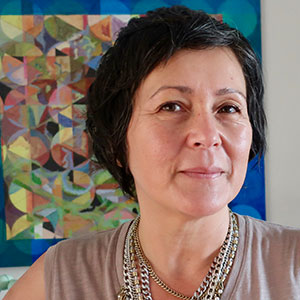
Hoa Nguyen is the author of several books of poetry, including As Long As Trees Last, Red Juice and Violet Energy Ingots, which received a 2017 Griffin Prize nomination. As a public proponent and advocate of contemporary poetry, she has served as guest editor for The Best Canadian Poetry in English 2018 and she has performed and lectured at numerous institutions, including Princeton University, Bard College, Poet’s House, and the Banff Centre’s Writers Studio. Recipient of a 2019 Pushcart Prize, she has received grants and fellowships from the Canada Council for the Arts, the Ontario Arts Council, the MacDowell Colony, and the Millay Colony for the Arts.Her writing has garnered attention from such outlets as The PBS News Hour, Granta, The Walrus, New York Times, and Poetry,among others. Born in the Mekong Delta and raised and educated in the United States, Nguyen has lived in Canada since 2011. Nominated by Vi Khi Nao / Representative text: Red Juice

